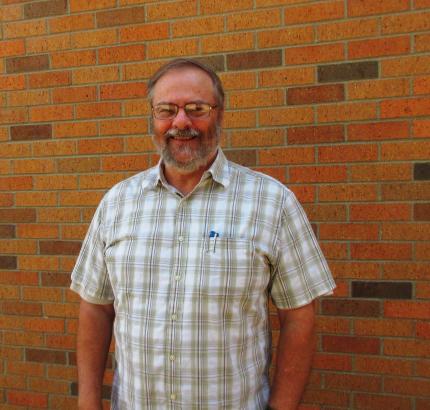Bekker Leads New Group of Educational Ministries

Chris Meehan
Gary Bekker was teaching and serving as academic dean at Calvin Theological Seminary when he went to give a lecture on preaching at a school in Nairobi, Kenya, in the late 1990s.
While he was visiting Kenya, Bekker had a chance to speak to a group of local pastors and others, some of whom would eventually become part of the Timothy Leadership Training Institute (TLTI) program — of which he has been recently been named the director.
“I have had a long history with Timothy and am grateful to be in this new position,” said Bekker.
At that time in the 1990s, said Bekker, Dennis Hoekstra, a former Calvin College education professor, was in the early stages of helping to develop TLTI as an organization that offers training to pastoral leaders in various regions. TLTI today reaches more than 40 countries with materials in some 30 languages.
Also helping to develop the TLTI approach was then Christian Reformed World Missions missionary Harold Kallemeyn and several now retired faculty members at Calvin Theological Seminary.
As it turns out, from that initial speaking experience in Nairobi, said Bekker, he has had a chance to be connected with and watch as TLTI expanded from that site in Kenya to countries around the world.
Later he was also able to support and work with TLTI in many ways while he served as director of Christian Reformed World Missions. TLTI is now a ministry of the Christian Reformed Church in North America.
Bekker said TLTI “emerged out of an expressed need of some pastors of Anglican, Reformed, and other churches in East Africa who wanted to learn how to better deal with stewardship issues in their churches.”
Many of these pastors struggled with having to encourage giving in their struggling churches. Also, contrary to how they worked when finances were more available to them, many of the pastors did not relish the reality that they would need to be bivocational in order to move ahead.
But things only grew from there.
Working in partnership with World Renew and other groups and churches, said Bekker, TLTI developed a range of materials and training modules that focused on teaching pastors and ministry leaders, most of whom had had little formal training, the basics of successfully serving in ministry.
“TLTI provided just-in-time learning on many things that the pastors were dealing with in their ministries — such as preaching and pastoral care.”
Under the TLTI model, students gather for short periods, go through training, set goals and develop strategies, return to their churches to implement the strategies, and then meet again to report on how things went at their church and to undergo more training.
In the process, pastors who have grown their capacity for effective Christian ministry also learn to multiply what they have learned by training others, using the same materials.
Then, in turn, their trainees train others in the spirit of 2 Timothy 2:2: “Entrust what you have heard from me to those who will be qualified to teach others.”
“My hope is that a whole lot of the pastors have gained a deeper sense of call as pastors out of the TLTI training,” said Bekker.
Today, as the contexts and educational needs of churches and ministry leaders are changing, TLTI is looking to see what adaptations it may need to make for the future.
“Based on 20 years of experience, we may need to update our materials so that they can be more culturally relevant — and take into consideration the learning styles in the different countries,” said Bekker.
And as the use of cell phones and social media have exploded in the past 20 years, these things need to be factored in as TLTI goes forward, Bekker added.
“We will be asking how new folks can be drawn in and how we can get younger people involved,” he said. “We will be looking to build and extend our international platform and to ensure accountability.”
Bekker has stepped into the role of serving as director of TLTI at an important time in its 20-year history — as the ministry begins to work more collaboratively with two other CRC educational ministries. In his new role, Bekker will be overseeing the work of Coffee Break Ministry, especially as this Bible-study program for laypersons continues to expand globally. In addition, he will be directing the growth of Educational Care, a program he helped to develop as director of World Missions.
Taking the same model of teaching pastors and ministry leaders how best to weave a Christian worldview and its associated values into ministries, Educational Care works with Christian school teachers to help them better incorporate gospel lessons into their curricula.
“Much of what TLTI, Coffee Break, and Educational Care do falls into the gap between formal schooling and informal learning,” said Bekker.
“These three programs share largely Christian Reformed Church origins. Our vision going forward to is to continuing investing in all three. What doesn’t change is that the real goal is to transform pastors, Christian school teachers, and laypersons for the work of the gospel.”
Bekker succeeds Stephen Tuuk, who has been with TLTI for the five years, first as a board member and then for the past three years as president and chief executive officer. Under Tuuk’s leadership, Timothy expanded the reach of its ministry and reorganized internal operations. Among other things, Tuuk played a role in creating closer ties between TLTI and the Christian Reformed Church in North America.
For more information, visit the TLTI website.


